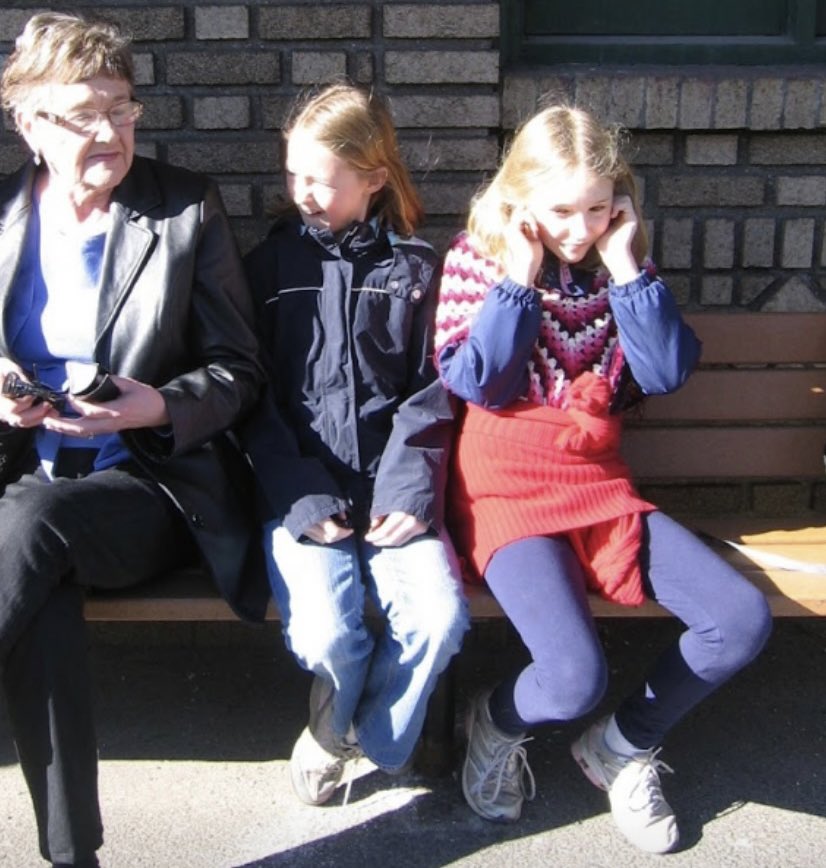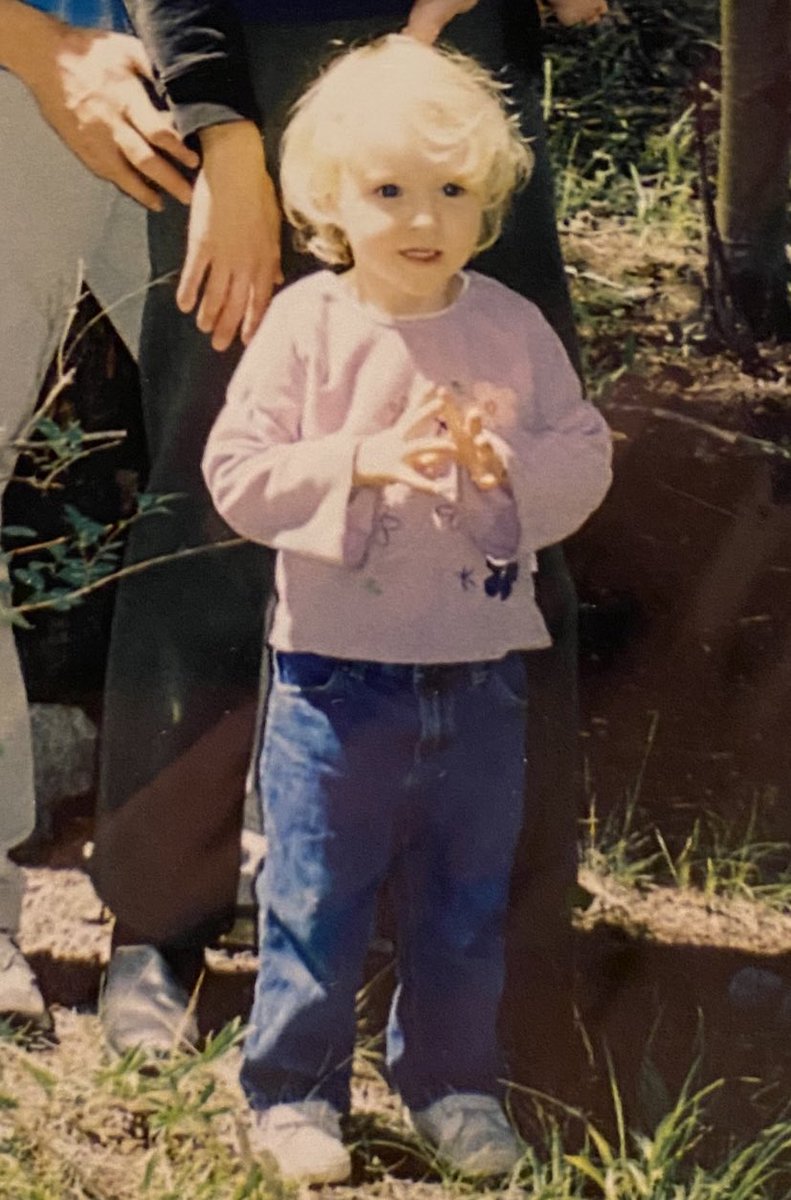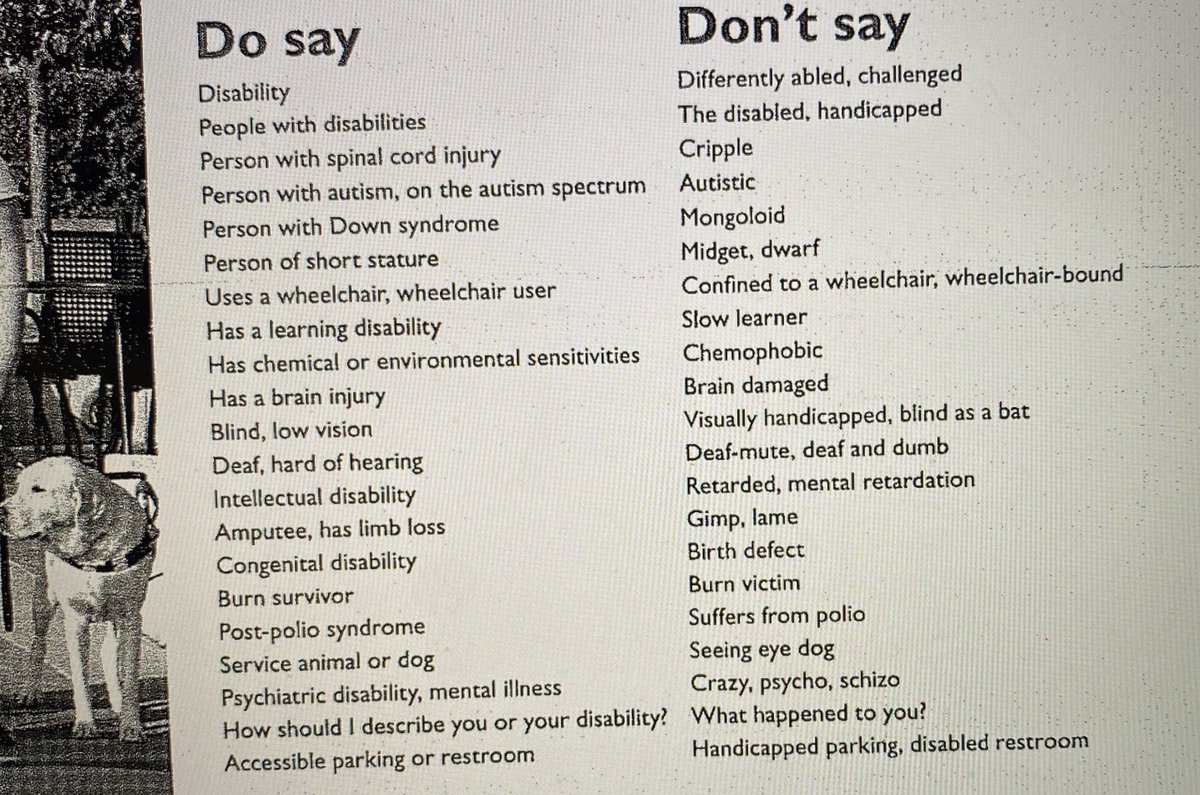
Yesterday I made a thread about how the caricature of autistic body language in Sia’s movie is harmful.
Some autistic people said the scenes made them feel ashamed of their own body language.
So I want you to see a few photos of me, and know that I’m not ashamed.
Some autistic people said the scenes made them feel ashamed of their own body language.
So I want you to see a few photos of me, and know that I’m not ashamed.
Here’s a photo of me when I was 8 years old. I had an overbite and I would often put my front teeth over my bottom lip as a stim. This is a characteristic that was mimicked in Sia’s movie.
I still put my teeth over my lip.
I still put my teeth over my lip.

Here’s another photo of me around the same time period. On a hike with my family, I started flapping my hands while we sat down for a water break.
I still flap my hands.
I still flap my hands.

In this photo I’m plugging my ears as a train rolls in, because the high-pitched squeaking and rumbling was overwhelming.
I still cover my ears at loud noises.
I still cover my ears at loud noises.

Here’s a photo of me when I was around 2 years old, stimming with my hands.
I still stim with my hands.
I still stim with my hands.

Here’s a photo of me much more recently (17 years old), sitting in an unusual position on a couch next to my grandmother.
I frequently sit like this.
I frequently sit like this.

Here’s a photo of me around a year ago, jumping up and down while flapping.
I’ve done this stim my whole life.
I’ve done this stim my whole life.

Here’s another photo of me doing full body stims, in my dorm room at college.
I still do this, every day.
I still do this, every day.

I am showing you all these photos of me because I want you to know that you’re not alone.
The body language that was caricatured in Sia’s movie, is my body language too.
And it’s nothing that we need to be ashamed of. I’m actually quite happy to be visibly autistic.
The body language that was caricatured in Sia’s movie, is my body language too.
And it’s nothing that we need to be ashamed of. I’m actually quite happy to be visibly autistic.
Stimming is an act of rebellion in a world where people mock us for being ourselves, and tell us to have “quiet hands.”
Not all autistic people move in the ways I do. But those of us who do move in these ways are heavily stigmatized.
I don’t accept that stigma.
Not all autistic people move in the ways I do. But those of us who do move in these ways are heavily stigmatized.
I don’t accept that stigma.
• • •
Missing some Tweet in this thread? You can try to
force a refresh






